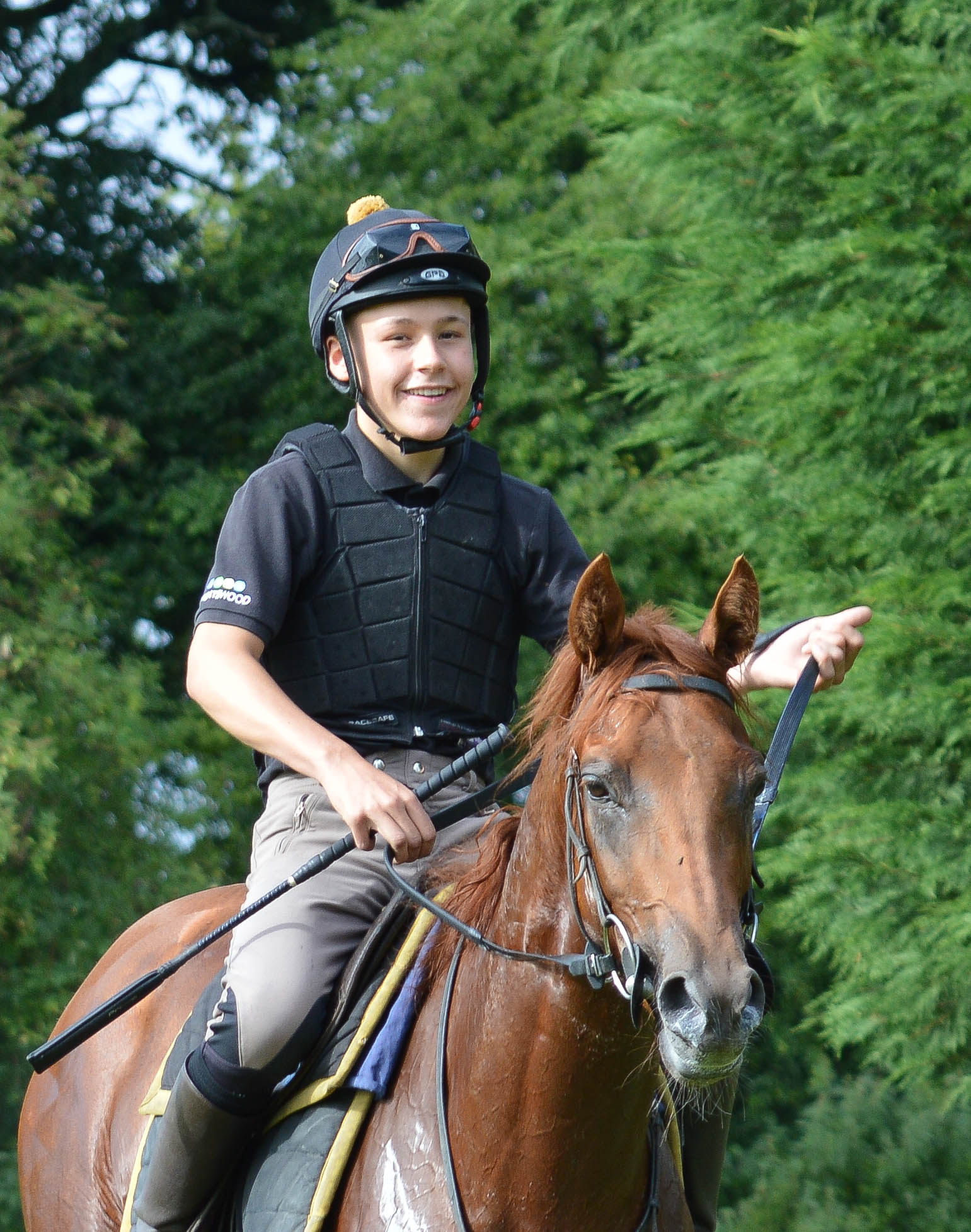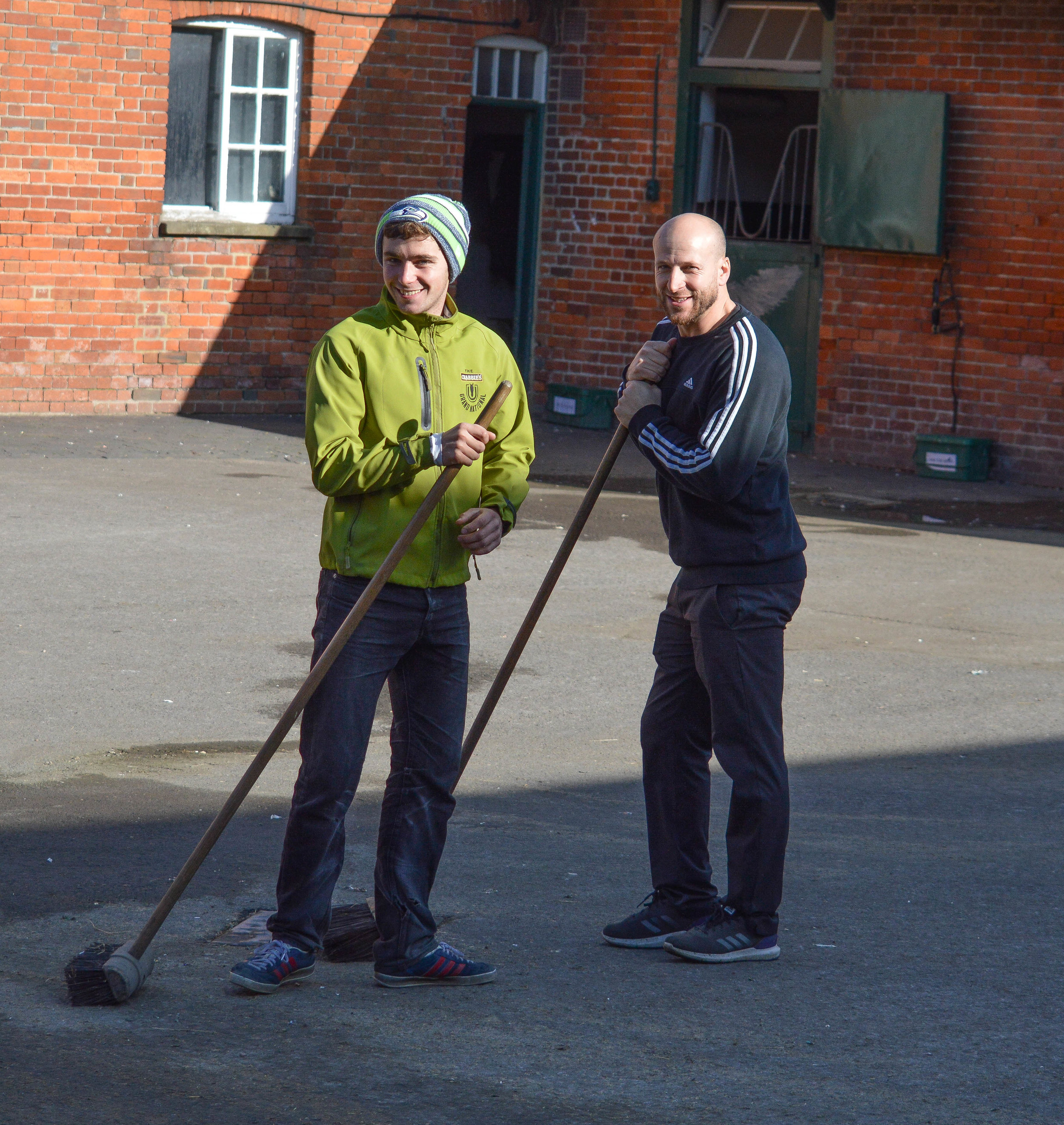Racing Groom – the .com needed by every country
By Lissa Oliver
You would think that racehorses bring more than their fair share of issues to a stable, but more often than not they are the simplest aspect of the job of training. They don’t look after themselves, however, and that’s where it gets complicated. Shortage of staff and the difficulties of staff retention are subjects we have dealt with in almost every issue, and the problem isn’t going away.
Part of the problem could be the image the racing industry presents of itself and the perceived lack of career progression; even trainers are sometimes unaware of the many and varied skill sets within their staff. Fortunately for the UK, this problem is now being addressed and hopefully rectified over the coming years, with the aid of an innovative new website originated, created and funded jointly by the National Trainers Federation (NTF) and the Racing Foundation.
Shelley Perham is the Nationals Trainers Federation (NTF) consultant for Recruitment and Retention of Racing Staff.
In the UK, Shelley Perham is the National Trainers Federation’s (NTF) consultant for Recruitment and Retention of Racing Staff and explains the reasoning behind racinggroom.com. “Racing Groom started as a mind map to pull together all the fragmented pieces of information from various stakeholders who offer services of support to racing grooms.
“When I googled ‘how to become a soldier’, there was an in-depth amount of content to help at the moment of decision making. I googled ‘how to become a racing groom’, and it only led to the job boards and training providers. From the trained eye, there was no proper job description or anything to inspire a young person to look further at a career as a racing groom”.
Things have moved on significantly now, however, and the current career advice given is impressive, Perham points out. “There is a huge package of support and benefits which accompanies the job and I wanted to pull it all together in one place so we could demonstrate that there was no better time to work in racing”.
Perham’s background is showing and competing, and she recognised the benefits and support offered by racing are vastly different to that which grooms are offered in other equine disciplines, “but at that time we weren’t shouting from the rooftops about it”.
The racinggroom.com hub came about after Perham looked at her daughters’ university portal, where students can log in to find out what is happening on campus, access discounts and read content relevant to their studies. “We don’t have a staff intranet, and the NTF sends out important notices to trainers which may not always pass down the line to staff. I wanted to help staff feel empowered, recognised and valued, so providing industry news direct to them seemed to be a logical step”.
When Perham started the role of consultant to the NTF, her first question was ‘what had happened to all the racing grooms who had left the industry’? There was no database which could be used to contact former grooms to inform them that things had changed since they had left, or to run a survey to ask why they left. It seemed logical to her for the NTF to start its own database where we could communicate with staff.
“We are dealing with over 4,000 racing grooms, which is a decent number to ask suppliers and businesses to make offers of discounts on products that racing grooms use on a day-to-day basis. The ambition is to have all racing grooms in the UK registered as members, then we can start approaching companies to offer staff discounts and rewards”.
It was a very ambitious idea, to say the least, and finding a website agency able to deliver was the first step, but once sourced, the project happened quite quickly in just over 18 months from that original mind map to launch…
TO READ MORE —
BUY THIS ISSUE IN PRINT OR DOWNLOAD
WHY NOT SUBSCRIBE?
DON'T MISS OUT AND SUBSCRIBE TO RECEIVE THE NEXT FOUR ISSUES!
Lycetts Team Champion Award
Published in European Trainer - October - December 2017, issue 59
Click here to order this back issue!
The important role played by stable staff has always been recognised by the horsemen and women employing them, though perhaps not always shown. It has certainly been overlooked beyond the stableyard, with the apparent view outside of the racing industry that stable work is unskilled and without long-term prospects. This misguided view has been detrimental, discouraging young people outside of the industry to explore job prospects and consider a role with thoroughbreds.
Recognising the individual skillset of the various roles within a working yard is important and while it may take time to get used to new job titles, where for centuries Lad or Lass sufficed, the titles are helping to identify particular roles and logical career progression. Above all, we are learning to openly value our team members and reward their skill and dedication, which means a tremendous amount in terms of job satisfaction and morale.
A wariness of comparing our workplace to any standard business is understandable, but it is important to recognise it as a business and every trainer wants to operate successfully. Peter Burnet, of the Peplow Group, has delivered learning and development programmes for individuals, teams and organisations since 1992. It's interesting to note that many of Peplow's programmes relate to the horseracing industry, “but can be adapted to any sector or organisation.” In this instance, our industry is setting the target for other industries to aspire to. Teamwork is naturally at its strongest in a working yard and can be seen as our industry's greatest, and to date overlooked, asset.
The team at Peplow explain that, “effective teamwork lies at the heart of every well managed organisation. The need to have a common purpose, clear objectives and a will to work cooperatively with colleagues is essential to maximise performance.”







